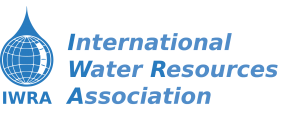IWRA TASK FORCES
Water & SDGs
Despite their global scope, SDGs often overlook local contexts. Implementing them requires adapting goals to regional conditions and priorities, involving diverse stakeholders, and addressing trade-offs. For example, localised SDG efforts in Italy and China illustrate the need for context-specific goals and monitoring. At local levels, sustainable urban development should use city-specific indicators and engage communities in decision-making.
The International Water Resources Association (IWRA), an international network of water experts, supports sustainable water management worldwide. Aligned with the UN’s 2030 Agenda, IWRA’s Task Force (TF) on Water & SDGs will help realise these goals by integrating SDGs into its mission. This includes adapting global goals to specific water management needs across different scales, from large basins to local watersheds.
Water & SDGs will address the following challenges and needs in the context of sustainable water resources management:
- Diversity of local conditions and complexities across regions, including the various local priorities and competing interests among various cohorts of stakeholders
- Data scarcity for the assessment of SDGs across scales (related to Reviews of indicators conducted by United Nations Statistical Commission
- Lack of state and progress monitoring and assessment towards SDGs (related to Monitoring Tool based on the “SDG Index and Dashboards Report” to track countries’ performance on all 17 Sustainable Development Goals
- Need of appropriate institutional support, especially local involvement and participation of various stakeholder communities
- Risks posed by future uncertainties and risk management infrastructural needs in different regions and areas
- Limited interactions between science and practice communities
- Limited communication among countries/regions
By addressing the challenges and needs listed above, Water & SDGs will address the following objectives and outcomes.
- Conducting synthesis of country/region experiences and bringing up the awareness in national and international water resources communities
- Promoting research, education and practice via a white paper (to be prepared by the TFC bureau committee members), journal special issues, workshops, and conference sessions
- Developing local SDG water indicators via pilot basins, countries, and cities, with consideration of local setting of synergies and tradeoffs in integrated water resources management
- Promoting evidence-based decision support tools for local water management practices
- Developing guidelines for best management practices at the basin and sub-basin scales
- Ximing Cai, University of Illinois at Urbana-Champaign, USA
- Alcigeimes B. Celeste, Federal University of Sergipe, Brazil
- Erhu Du, Hohai University, China
- Timothy Foster, University of Manchester, U.K
- Paul Satur, Monash University, Australia
- Dahlia Sabri, KEO International Consultants, Egypt
- Claudia Ringler, International Food Policy Research Institute, Washington DC, USA
- Riddhi Singh, Indian Institute of Technology Bombay, India
- Raya Marina Stephan, Water law expert, International consultant; Deputy-Editor in Chief of Water International, IWRA
- Country specific, e.g., India Water & SDGs Working Group
- Urban/rural specific, e.g., City Water & SDGs Working Group
- Technology-focused, e.g., Data and Monitoring Working Group for Water & SDGs
- Institutional-focused, e.g., Policy Working Group for Water & SDGs
- Education-oriented, e.g., Training Development Working Group for Water & SDGs
- Country specific, e.g., India Water & SDGs Working Group
- Urban/rural specific, e.g., City Water & SDGs Working Group
- Technology-focused, e.g., Data and Monitoring Working Group for Water & SDGs
- Institutional-focused, e.g., Policy Working Group for Water & SDGs
- Education-oriented, e.g., Training Development Working Group for Water & SDGs
Kindly send an email to office@iwra.org if you would like to learn more about the Task Force.
GET IN TOUCH

ADDRESS
Stafford Rosenbaum LLP
222 West Washington Avenue, Suite 900
Madison, Wisconsin 53701-1784
United States of America
IWRA Executive Office
22, rue de Madrid 75008
Paris, France
Phone: +33-6-44-20-57-53
